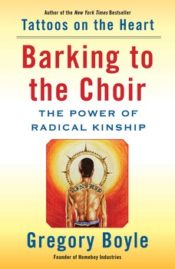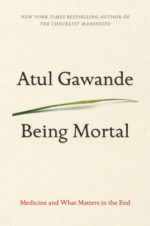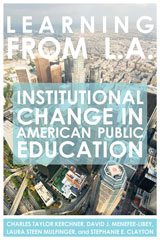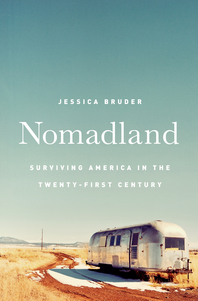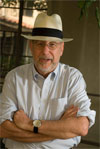Encounters with A Hoosier God
Posted on | December 20, 2005 | Comments Off on Encounters with A Hoosier God
A personal essay about growing up Presbyterian in Indiana in the 1950s. Originally written in the late 199s and revised in 2005.
I have a memory, recessed deeply in boyhood, of a towhead furiously peddling a balloon-tired single speed bicycle pretending it was a Corvette…peddling toward Tabernacle Presbyterian Church.
Indianapolis in the ‘50s was just down the sociological and chronological road from the Middletown of 1927.[1] When later I read Robert and Helen Lynd’s classic, I would come to understand concepts such a privilege and class, but those terms would have been wasted on the kid riding the bike. What I did know was that TAB, as the church was known, was big and important. It was an English gothic rockpile of Indiana limestone with rose windows and carved wood. Solemn sounds came from the sanctuary, where in my grandfather’s day ushers were attired in frock coats and striped pants. It was high church, indeed.
But a boy’s church was in the other wing of the building. It was an article of faith in those days that sufficient physical exercise could prevent “impure thoughts” among the young. Accordingly, TAB invested heavily in baseball and that lodestone of Hoosierism, basketball. I proved almost entirely inept at baseball and a willing but untalented basketball player. (I solved this problem in later adolescence by becoming a sports writer and photographer thus determining which of the Golden Boys would get their pictures in the town newspaper. This created for me an elevated and protected status among the geeks. But that is another story.)
But I was a good Scout. Troop 72 BSA met in the church basement, and from Tenderfoot to Eagle, it was the greater part of my pubescent life. At age 12 I was even allowed to travel to a strange and exotic place called Irvine Ranch to participate in a Jamboree.[2]
Throughout all of this, God hovered politely.
There was a literal, biblical God in Sunday school classes. On occasion, the Sunday school superintendent, Miss Dudley, beckoned us to come to the “bosom of God.” This raised nervous laughter among the boys for Miss Dudley, indeed had a bosom: not bumps like some of the 6th grade girls were developing or breasts like the calendars in the back room at the Standard Oil filing station. Beneath that starched blouse laid a structure of architectural significance. Finding God in there seemed scary.
Miss Dudley also bade us to become “fishers of men” by marching forward and reciting Bible verses. Successful recitation earned you a little metal fish strung on a ribbon. Some girls had many fish dangling from their ribbons. But I quickly realized that becoming a fisher of men was an optional activity, and—like most of the boys—I opted to fish elsewhere.
The God of these stories and verses was distant though historic. We learned about the Tribes of Israel, about their slavery and oppression. No one mentioned the modern parallels: that schools in Indianapolis were segregated; that most of our houses conveyed by restrictive real estate covenants that prevented the descendants of our slaves or Israel’s tribes from living in them.
Anyway, the general idea was that God’s work was pretty much done. Jesus came down, taught some lessons, healed a few people, offended mean Harrod, and got himself killed because he refused to bring Big Daddy in to save him. Then he went back up, and that was mostly the end of things. Some men my father’s age—particularly one who survived Corregidor—spoke about personal encounters with God, but at TAB God was an institution, not a being.
By the 7th grade we had left Miss Dudley behind and went to Mr. Sisson’s class for Sunday school. Mr. Sisson kept order by paying for good behavior with Cherry Cokes. We thought Mr. Sisson was cool, but I can’t remember a thing that happened in his class.
In youth group we learned the difference between true and false gods. A true god was Protestant. This was to be clearly differentiated from a Catholic God, which is why we should not date any of those girls. (Having been totally unsuccessful in convincing us not to have impure thoughts, youth group moved straightaway to impure deeds. The list was long. Catholic girls were near the top. Jewish girls, such as object of my 8th grade affection, Nancy Reigenstreif, were beyond the pale.)
True god was also distinguished from godlessness. Communists were godless, socialists were fellow travelers, and Democrats were highly suspect. Joe McCarthy was alive and well, and his influence was strong.[3] Almost anything to the left of Homer Caphart[4] was a little pink. Jesus, the social radical and movement founder, was nowhere to be seen.
We left Indiana midway through high school for the suburbs of Chicago. There was no Presbyterian Church in town, and the Methodists invited us in. Carl Mettling, the pastor, came to call, and I remember the highly polished black wingtips and the balanced teacup on his knees. Carl wasn’t cool, and I wanted cool above all things. So, church was a holiday thing…. “we gather together to ask the Lord’s blessing, ” etcetera.
My heathen buddies and I did talk about God, however. Dave Stroh, one of my closest friends gave good God talk. We worked as camp counselors together and spent many evenings conversing. He went to Wheaton College and Yale Divinity School and served as a pastor before leaving the ministry for city planning and the law. He lost God for a while, but has found him again.
When Dave went to Wheaton I went to Illinois and found God and cool at the same time. The campus YMCA had on its staff a wonderful man, Ed Nestigen, who filled a young man’s appetite for quest and understanding. The place was full of brilliant speakers and high profile politicians, who were forbidden to speak on campus. The Y was everything the church and not been, God was inquisitive and social, there and the relationship between God and action was on everyone’s lips. People were leaving the cornfields in buses to fight for integration in the South. Stroh went; walked across the bridge in Selma with MLK. You could talk about God at the Y; you could debate about him.
I edited the campus newspaper and thus was allowed to hold court in the coffee room, which was an altogether strange experience for a shy and insecure guy. Great conversations and conversationalists! Kenny Brown and Bill Stevens from the paper were often there. Steve Sample, later the president of USC, wandered in occasionally. Roger Ebert, who later became Roger Ebert, was a contentious regular, as was Bob Backoff, who became a spy. With some regularity Harry Tiebout, the philosopher, would wander through exclaiming that, “the only culture in this town is ag-ri-culture.”
But mostly there was this very attractive blond. God was God, but Leanne was heavenly. We courted and married. Jim Hine minister of the campus Presbyterian church was our special friend and spirit guide. He counseled us and officiated at our wedding.
Camelot came, and it vanished one November afternoon in the middle of Leon Richard’s lecture on operations research.[5] The next day Bill Mauldin drew a brilliant editorial cartoon of the Lincoln Memorial sculpture sobbing head in hands. I always felt that that was the real end of adolescence.
Florida and journalism followed, testing the Civil Rights Act, desegregating the schools, witnessing Vietnam start and its escalation pour from the Teletype. A conventional God morphed into a very angry God in my mind, and the evening I edited Seymour Hirsch’s dispatch about our slaughter of civilians in My Lai, I cried real tears in the newsroom and remembered Jesus’ lament, “My God, My God, why have you forsaken me.”
[1] “Middletown” was Muncie, Indiana
[2] As far as I can reckon, our campsite was about where Fashion Island shopping center is today.
[3] The man who lived next door to us headed the Americanism committee of the American Legion. He was, by his own recounting, a great American. It turned out that he also beat his wife, who eventually left him.
[4] Indiana’s notoriously retrograde U.S. Senator.
[5] He finished the lecture and gave us an exam the next day.
